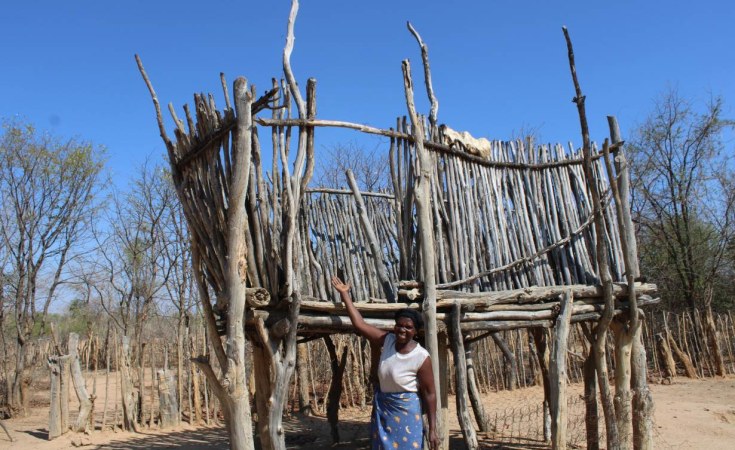PRESIDENT Emmerson Mnangagwa has declared a state of emergency on drought currently gripping Zimbabwe.
His declaration makes Zimbabwe the third African country to declare the drought a national disaster after Zambia and Malawi.
Addressing the media at the State House on Wednesday, Mnangagwa said the country has a grain deficit of 680 000 and over 2, 7 million people require food aid.
In Zimbabwe, the planting of staple grains was delayed due to high temperatures, significantly reduced rainfall and dry spells caused by El Nino which severely affected yields.
El Nino is a natural climate phenomenon in which surface waters of the central and eastern Pacific become unusually warm, causing changes in global weather patterns. The event forecasted for 2023-2024 is associated with drier-than-average rainfall.
"Dear Zimbabweans; The foregoing situation of the climate change-induced drought requires measures and interventions as provided for in our laws. To that end, I do hereby declare a nationwide State of Disaster, due to the El Nino- induced drought.
"We expect 868 273 metric tonnes from this season's harvest, hence our Nation faces a food cereal deficit of nearly 680 000 metric tonnes of grain.
"This deficit will be bridged by imports. Measures to encourage private sector participation are already in place. The top priority is securing food for all Zimbabweans. No Zimbabwean must succumb to, or die from hunger," Mnangagwa said.
Mnangagwa said food insecurity levels have risen and to that end, the country is banking on importing grain from other countries.
Zimbabwe planted close to 2 million hectares of maize this summer cropping season.
However, the planted maize crop was attacked by armyworms following a national outbreak.
To this end, Zimbabwe is expecting only 868 273 tonnes and has 356 000 tonnes in its strategic grain reserve.
"Adequate resources will therefore be mobilised and redirected towards national food security, including through supplementary grain imports," he said.
The government is also banking on wheat-based food security and will be expanding winter crop hectarage to cover all available irrigable land.
According to the president, preliminary assessments have shown that the country requires more than US$2 billion towards various interventions of national response to the crisis.
Mnangagwa begged the diaspora community, United Nations agencies, and humanitarian agencies among others to intervene.
The current drought has also resulted in reduced power generation in the country which highly relies on hydro-electricity.
He added that there will be more focus on solar power to keep businesses afloat.


